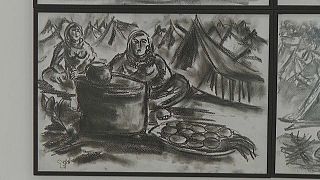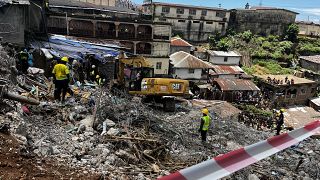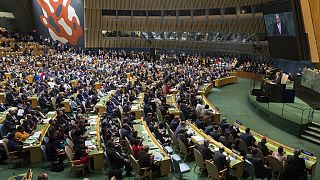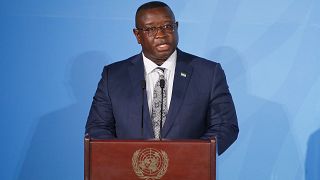Sierra Leone
“Mary” was just nine years old when her childhood ended abruptly.
Three men fed her sedatives then raped her.
Her mother, who had been washing clothes in a stream near their home in Freetown, Sierra Leone’s capital, got home to find her child lying on the ground distraught, her legs and dress stained with blood.
“They put dirty clothes in my mouth and raped me,” the girl told AFP, without giving her real name.
The family reported the attack to the police and identified the rapists, but no charges were ever brought.
Thousands of children and young girls were raped last year in Sierra Leone , a silent epidemic of suffering in one of the world’s poorest countries.
According to police statistics, recorded cases of sexual and gender-based violence almost doubled last year, reaching 8,505 in a population of 7.5 million, up from 4,750 a year earlier.
And of that number, 2,579 cases , around a third , involved the rape of a minor.
But, as with the incidence of rape in almost every country, this shocking tally is almost certainly an understatement. “Mary” and her family plucked up the courage to report the crime: many do not.
“We have a culture of rape in Sierra Leone,” admitted Chernor Bah of the UN’s Global Education First Initiative at a demonstration in Freetown last month where more than 500 black-clad protesters took to the streets over violence against women.
Last month, First Lady of Sierra Leone, Fatima Bio led a national campaign against rape in the capital, Freetown.
“Our children are dying in the hospital every day, and if we give you the statistics, you’ll start crying for Sierra Leone, and if we stop this together, our children will grow up, let’s not be the ones who kill children before they do not become someone just because we want our fiancee’s money”, she said.
Just weeks before, the country had been shaken by the rape of a five-year-old girl by her 28-year-old relative.
Her attacker raped her anally, crippling her spine.
Doctors at the Aberdeen Women’s Centre in Freetown, which helps women and girls who have suffered from sexual violence and rape, said it was unlikely the child would ever be able to walk again.
The attack sparked outrage, with many people demanding that child rapists face a lifetime behind bars, calls echoed by President Julius Maada Bio himself.
“Let me be very clear: men who rape girls deserve to be jailed for life,” Bio said as his wife launched the “Hands off Our Girls”. campaign.
Reports of rape and the sexual penetration of minors, as child rape is legally termed, have steadily increased, according to the Freetown-based Rainbo Initiative, which provides free medical services and counseling to victims of sexual and gender-based violence.
Figures collated by the centre show that in 2018, 76 per cent of rape victims were aged 15 years or younger, including babies.
The rest of the victims were aged between 16 and 20.
And every month, an average of 149 victims fell pregnant as a result of rape.
AFP











01:38
Top Investigator: "War is being fought on the bodies of women in Sudan"
01:28
Dozens of health workers on trial in Turkey accused of causing infant deaths
01:22
Cases of new mpox strain more than double among children in DR Congo and Burundi
Go to video
Anglican Church leader cornered in child abuse scandal
01:02
Sudan rolls out malaria vaccines to bolster efforts to protect children
02:19
Burkinabe playwright aims to break the silence about rape